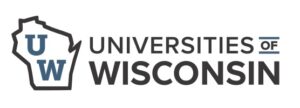 The Universities of Wisconsin Board of Regents will meet at UW-Madison on Thursday and Friday, February 5 and 6. The meeting will be hosted by UW-Madison and held in Union South. Information on joining the meeting via Zoom is here.
The Universities of Wisconsin Board of Regents will meet at UW-Madison on Thursday and Friday, February 5 and 6. The meeting will be hosted by UW-Madison and held in Union South. Information on joining the meeting via Zoom is here.
Regent committees will meet Thursday morning:
- The Business and Finance Committee will hear a presentation from UW-Madison on operational excellence and receive several reports and updates on topics including artificial intelligence, information technology projects, and financials.
- The Education Committee will consider approval of a new UW-Madison bachelor of science degree in Aerospace Engineering and updates to individual university policies relating to campaigning in residence halls. The committee will also hear a presentation from UW-Madison on teaching and learning and a presentation on artificial intelligence for academic officers.
- The Audit, Risk, and Compliance Committee will hear reports before moving into closed session to discuss several lawsuits relating to recent federal actions, contract negotiations, and issues related to campus crime detection and prevention.
- The Capital Planning and Budget Committee will consider granting authority for certain aspects of several building projects, including two at UW-Madison (Frautschi Center and Music Hall) and hear a report from UW-Madison on its facilities program. The committee will move into closed session to consider the naming of a UW-Madison facility.
The full board will meet Thursday afternoon and Friday morning. On Thursday, Regents will hear reports from System President Jay Rothman and Regent President Amy Bogost and a presentation from UW-Madison Chancellor Jennifer Mnookin. President Rothman will also facilitate a discussion on artificial intelligence featuring faculty, staff, and students from UW System institutions.
On Friday, UW-Madison will present and discuss The Wisconsin Exchange Program and Regents will hear UW-Madison’s NCAA Division I Athletics Annual Accountability Report. Before adjourning, the board will move into closed session to consider a naming at UW-Madison, honorary degree nominations at UW-Milwaukee, chancellor compensation adjustments, contract negotiations, campus safety strategies, and pending or possible litigation.

